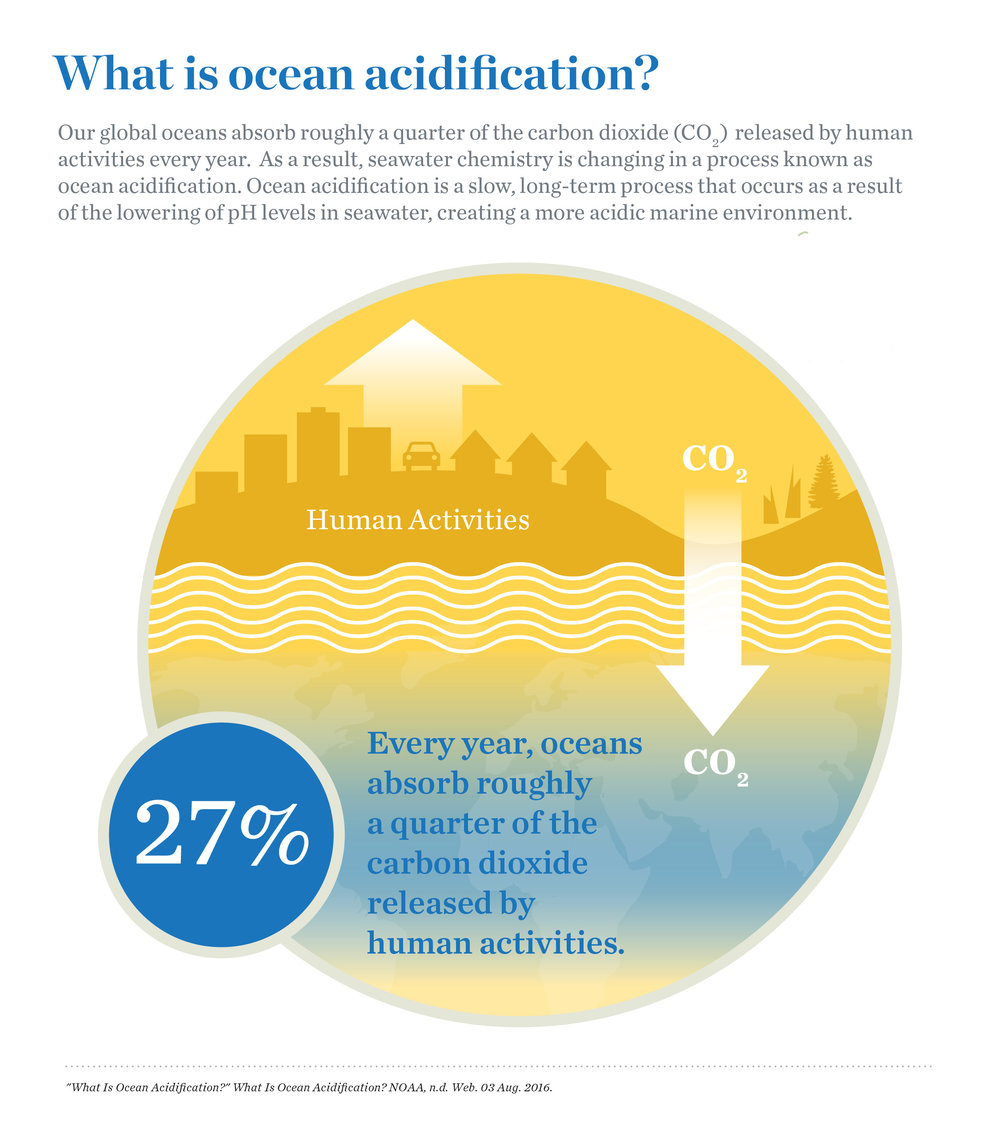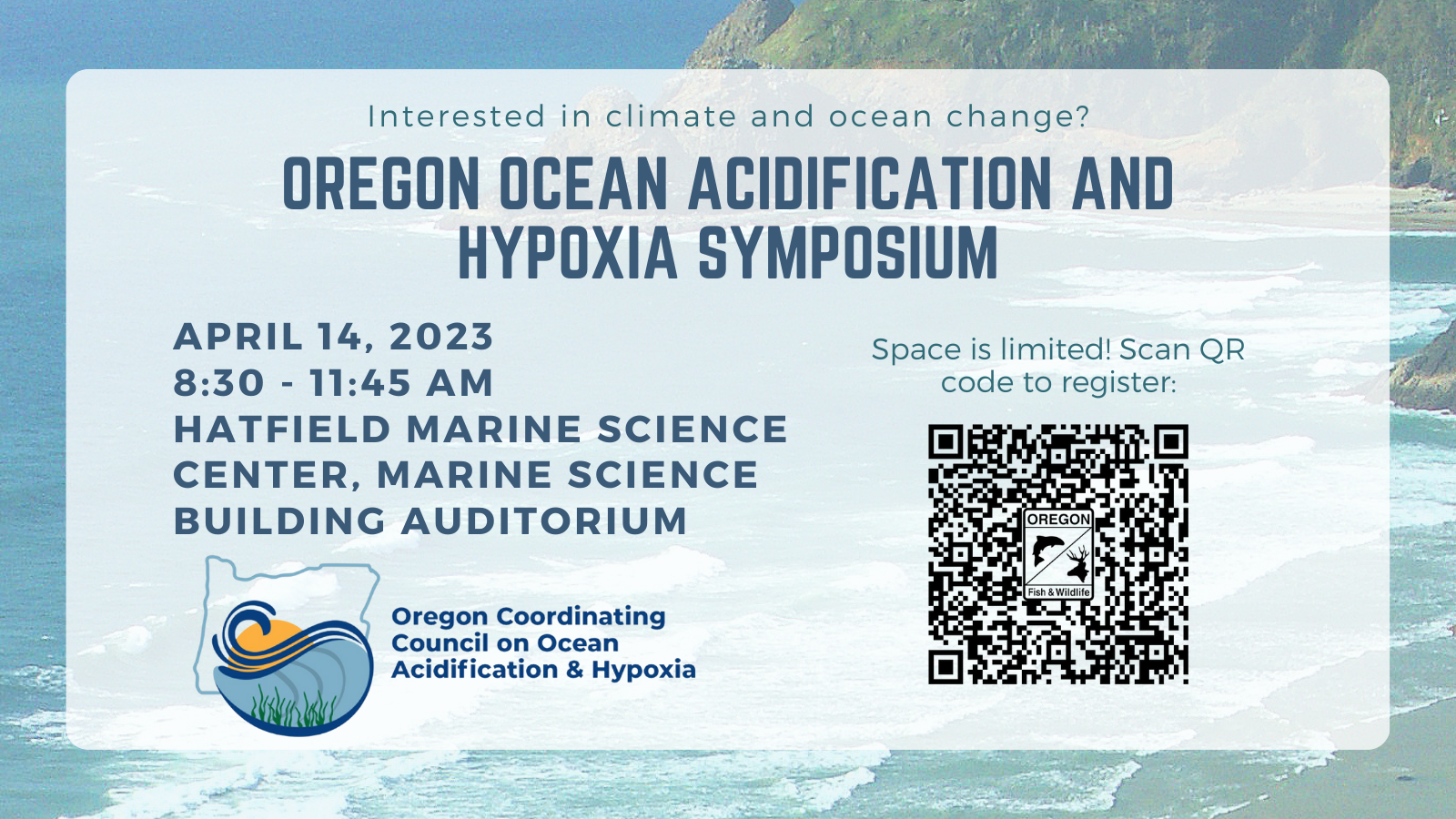 |
Oregon was one of the first places in the world to experience the direct impacts of ocean acidification and hypoxia (OAH) with the collapse of the Whiskey Creek Shellfish Hatchery in 2007. These changes in ocean acidity and oxygen are approaching or meeting levels that are problematic for oysters, crab, mussels, urchins, salmon, rockfish, and other species that Oregonians care deeply about.
To address these issues, the Oregon Coordinating Council on Ocean Acidification and Hypoxia (OAH Council) was convened by Senate Bill 1039 in 2017. The OAH Council produces Oregon's OAH Action plan every six years and Oregon's legislative reports on OAH every two years. For more information on the OAH Council and its work, visit the Council Information page.
|
On June 22, 2021, the Oregon legislature passed House Bill (HB) 3114, representing a historic investment in Oregon’s efforts to combat ocean acidification and hypoxia. With some direct appropriations to existing work groups at Oregon State University and Oregon Department of Fish and Wildlife, the bulk of the $1.9 million, one-time investment, was distributed through competitive grants led by the Oregon Ocean Science Trust (OOST). This was the first OOST “request for proposals” or RFP process, since the Trust was created by the legislature in 2013. All projects funded by the legislation were identified in the 2019-2025 Oregon OAH Action Plan.
On April 14, 2023, progress from all HB3114 projects were presented at a first annual Oregon OAH Symposium. With over 80 stakeholders, resource managers, journalists, and invested members of the public in attendance, this event was a great step in spreading awareness and interest in ocean change. A recording of the Symposium is available on YouTube.
For more information on the RFP process, visit the OOST website.
Resources - learn more about OAH
OAH Council Members and Staff – list of 13 members with their representation and Council staff
Meeting Information– includes dates, agendas, minutes, recordings
Stay Updated – how to subscribe to email lists that will keep you informed of the OAH Council and other ocean policy issues in Oregon

